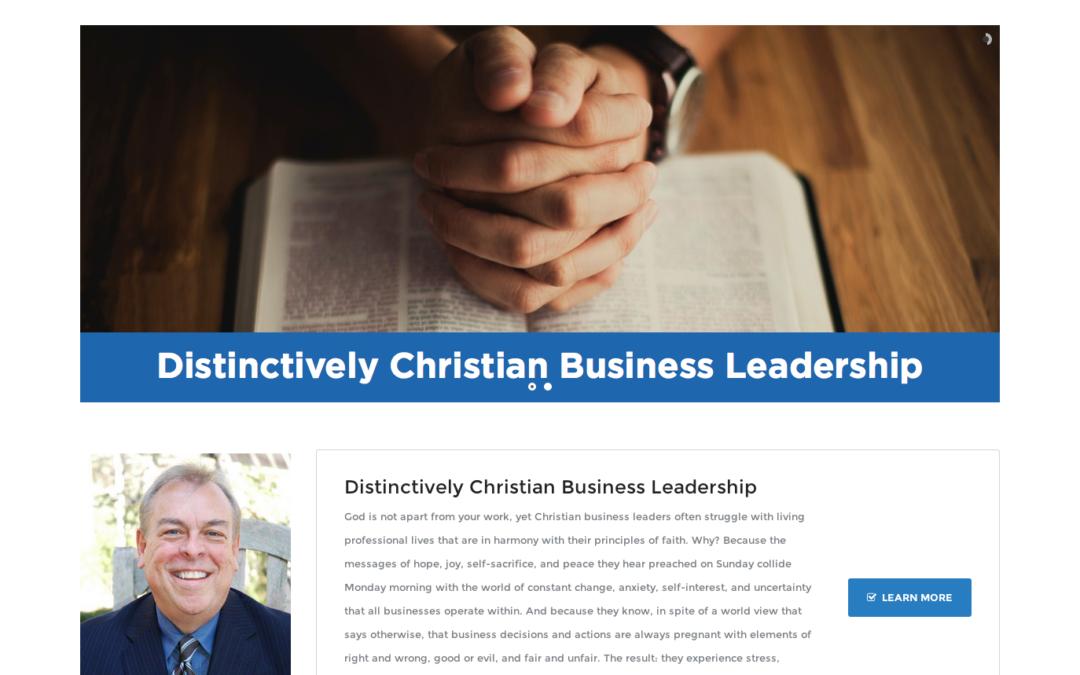
by Donald | Nov 6, 2014 | Blog
“Only let us hold true to what we have attained” (Philippians 3:16 ESV).
Dr. Seuss gave us a lesson in the art of negotiation and an example of the benefits of perseverance when Green Eggs and Ham was published in 1960. The Cat in the Hat was sure he did not like green eggs and ham, and equally sure he disliked Sam. But then, exasperated and wet, he tried them just to placate and send away persistent Sam and found out that he did, he DID like green eggs and ham!
Are you a Cat in the Hat Christian, or a Sam?
Forty years ago I was sitting in the lobby of the College of Business and Economics at the University of Kentucky killing time until my next class when a student I did not know sat next to me and asked me if I had been saved. “Yes,” I replied, while my body language, facial expressions and visible discomfort spoke loudly “no” and “leave me the hell alone.” I don’t remember what else he said, he didn’t stay long, but I remember his question, my discomfort, and my answer.
Cat in the hat-esque, I was unwilling to engage with a stranger about my beliefs in God, unwilling to engage with myself the depth of my own convictions, and unwilling to even engage in common Christian courtesy with another believer who felt a call to discuss Jesus with strangers. Parsimonious is a good word for who I was back then.
But I might be all Sam now. You see, our personal comprehension of what it means to be a Christian changes over time. The Apostles Paul and Peter speak of spiritual infants (cf. 1 Corinthians 3:1 and 1 Peter 2:2) who must grow up and develop into a mature understanding of God’s call on their lives. Peter describes spiritual maturity as passing through a series of phases that supplement and build a Christian life ready and useful for God’s service: “make every effort to supplement your faith with virtue, and virtue with knowledge, and knowledge with self-control, and self-control with steadfastness, and steadfastness with godliness, and godliness with brotherly affection, and brotherly affection with love” (2 Peter 1:5b-7 ESV).
Spiritual maturity is not linear. Rather, we grow, fall back, back-track, back-slide, and grow again. Living in the world we can be confused about values (virtues) and true knowledge (what is right and wrong and why), and the temptations of the pleasures of this world can rob us of self-control. Vanity, pride, sloth, and envy will erode steadfastness of character. But perseverance and the uplifting, encouraging, and disciplining actions of the Spirit urge us to pursue godliness, and from Christ-likeness we can approach others in brotherly affection and love.
Still, brotherly affection and love does not happen quickly. Christians disagree about things—does that surprise you? Some of those things we disagree about are human things, and they are troublesome enough; but some things are about theology, and we can become confused and angry with one another over doctrine. (“Thing One” and “Thing Two”, just to keep the Dr. Seuss theme going.) Because spiritual maturity is not linear, Paul admonished the Philippians to hold fast to what they had already attained.
While preachers and teachers influence and educate us, it is the job of the Holy Spirit to lead us into wisdom and understanding of the things of Christ. We are to test the things we hear (cf. 1 Thessalonians 5:21-22 and 1 John 4:1-8). As we grow in our spiritual maturity we will be stretched to consider new insights, new tolerances and intolerances, new compassions for ourselves and others, and we will experience new sadness over this broken world. Such emotions represent growing pains as the Holy Spirit leads us. But remembering the truths we have already attained will comfort us through our times of testing, stretching, renewal, and growth.
Thankfully, our Lord will not leave us alone once we have invited Him into our lives. He sees to it that we keep moving, keep growing.
The end of the year is fast approaching. Resolutions are just around the corner. Here at the start of November let me urge you to pause and reflect on your spiritual maturity. Are you growing or back-sliding? Are there obstacles standing in your way to becoming a mature Christian, equipped for service and prepared for the vicissitudes of life? What truths are you holding fast as you stretch into the future?
I have always liked Dr. Seuss stories. Here is a poor homage to him, but may it put a smile on your face.
Ponder, ponder, where you stand. Are you safe in God’s strong hand?
Or do you worry about what lies ahead, late at night while on your bed?
Awake! Awake! Put sloth away. Dawn is breaking, a brand new day!
Parsimoniousity? It shall not be the end of thee!
With the Holy Spirit shout, and let the Christian in you out!

by Donald | Sep 12, 2014 | Blog
“Blessed are they who keep his statutes and seek him with all their heart. They do nothing wrong; they walk in his ways” (Psalm 119:1b-2 NIV).
Autumn is here, and with the change in season has come football—something I really enjoy. But one cannot watch football without also being exposed to television commercials, and more frequently now than I ever remember, commercials embarrass me.
Last Sunday, watching a Saints game at home with my four young daughters, Levi’s intruded into my family with a commercial touting one important feature of their product is “they unbutton,” and the commercial had a young man and woman demonstrating how and why that might be important. It isn’t only Levi’s of course; much of what is on television or at the movie theater is about sex and lawlessness.
I attended a luncheon today with about twenty men from my church and our pastor observed that church attendance has all but disappeared in Europe. America is moving in the same direction. The obvious question is why?
Lack of relevance is one response, but I beg to differ. Our culture is no more decadent than the culture in which Christianity first began and flourished. Helping someone find purpose in life is always relevant; being refreshed in a dry and weary land is an act of love.
America’s movement towards alienation, self-interest, and decadence did not happen overnight, but it seems to be accelerating.
I didn’t like the movie Five Easy Pieces when I first saw it in the late 1970’s; it wasn’t a film audiences were supposed to “like.” No, the characters portrayed in the film, their life experiences, their prejudices, their inability to cope with responsibility and life choices, their alienation from society and themselves, made it pretty hard to like them. But it made them memorable to an impressionable young man like me who didn’t know how or where or even if he was going to fit in.
The lead character played by Jack Nicholson was smart, funny, and willing to take enormous risks (or maybe just willing to be nonchalant about consequences), but he wasn’t happy—not by a long shot. Neither was he useful to himself or anyone else.
There was nothing easy in Five Easy Pieces; rather, the film was uneasy from start to finish, even the more “normal” characters in the film were uneasy misfits. Why wouldn’t they be—they had no solid foundation upon which to build their lives—no alternative beliefs or causes worth submitting to or aligning with were presented in the film. The audience saw a montage of life from several vantage points that all bleakly pointed out the same truth: life is hard and meaningless. Everyone struggles; we age and get sick, we disappoint and are disappointed, and all the while we work at jobs that are not fulfilling— whether in oil fields or music halls.
That society applauded the film only puzzled me, but I have not forgotten the movie or the disquiet it made me feel. And I see it sometimes as the point of departure for our culture that has continued now for over forty years.
As lunch ended, a friend remarked that God may have taken His hands off of America for a time—but whether for judgment or a call to return to Him is unclear. The Old Testament speaks of God withdrawing His protection from the Hebrews. There was a time when God left me to my own devices; going my own way was what it took for me to know the depth of sorrow that accompanies living apart from God.
But God delivered me from my self. And that process of repentance and restoration and renewal is remarkable.
So even if Hollywood, ad firms, national television networks, and manufacturers of jeans remain out of touch with me, I know there is a sure foundation upon which to build a meaningful life. That foundation can be expressed in five easy pieces.
1. “In the beginning, God created the heavens and the earth” (Genesis 1:1 ESV). My good friend Roger Hall has compiled a list of eight questions whose answers suggest how humans view and understand life and life purpose. The first question each person should ask and answer is “what do I say about God?” The Bible says we are relevant because we have a Creator; we are not a happenstance occurrence of nature. Aimlessness is despair, but purpose energizes the soul.
2. “The beginning of wisdom is this: Get wisdom. Though it cost all you have, get understanding” (Proverbs 4:7 NIV). Roger’s second question is “what do I say about truth?” In my view, godly wisdom isn’t much discussed these days. We have abdicated education to the government. We have eschewed virtue as being hateful, discernment as divisive and bigoted, and truth as being whatever each believes it to be. Our disregard for wisdom is costing us all we have.
3. “There is a way that seems right to a man, but its end is the way to death” (Proverbs 14:12ESV). Here is a history lesson for you: no ancient civilization is still around. From the time we began to keep score, civilizations have arisen that have conquered the world. They have made many discoveries of science and mathematics; they have helped shape our philosophies, our art, and our humanity. None are still here.
4. “He has showed you, O man, what is good. And what does the LORD require of you? To act justly and to love mercy and to walk humbly with your God” (Micah 6:8 NIV). God has not been silent; He has expressed His commandments clearly. We want justice when wronged. We want mercy when we have wronged another. We are prideful. The Scripture commands we do all three, yet apart from God, doing one of them consistently is impossible.
5. “For God so loved the world that he gave his one and only Son, that whoever believes in him shall not perish but have eternal life” (John 3:16 NIV). God loves us. He has never stopped seeking after us. In antiquity, He revealed Himself in power and restraint. With Christ, He revealed Himself in love and mercy. God’s gift, given without merit, to a lost and perishing world was Jesus Christ, our sure and certain foundation; an ever present help in times of trouble.
God gives you purpose and relevance. God will save your life. Five easy pieces to practice, master, and set you free.

by Donald | Aug 27, 2014 | Blog
We are very excited to announce that we have recently updated the website for our friend Donald Moore. We have made it easier to navigate, and updated quite a bit of features to make it easier for you to follow Don’s blogs and stay in touch with Don. Take some time to look around, and make sure you are signed up to receive his newsletter!
-Incrse // Creative Firm

by Donald | Aug 4, 2014 | Blog
“But you be watchful in all things, endure afflictions, do the work of an evangelist, fulfill your ministry” (2 Timothy 4:5 NKJV).
The movie “The Monuments Men” tells the story of a group of art experts charged by Franklin Roosevelt with a mission to retrieve art that Hitler and the German army has stolen and to return as much as they can to its rightful owners. A number of skeptics denigrate the effort to send men into harm’s way over art, but the lead character, played by George Clooney, responds “If you destroy a (people’s) history, you destroy their achievements, and it’s as if they never existed.” Art, as a representation of a people’s culture, history, veneration, and dreams, was therefore important to preserve and return.
I’ve never thought of sculptures and paintings as “monuments;” rather, I believe monuments are things set up to keep alive the memory of a person or event. The original historical documents of our country seem like monuments to me—the Declaration of Independence or the Constitution, for example, or the Old North Church in Boston memorializing Paul Revere’s midnight ride—these all serve to connect our present with our past and are important in both preserving our history and shaping the future.
The Bible includes important stories that conclude with a monument being established so that future generations will not forget an encounter with God and his will and purpose. The book of Deuteronomy admonished the Israelites to observe and to keep “all the days of their lives” (Deuteronomy 6:2b NKJV) the Ten Commandments of God and the Golden Rule. “You shall teach them diligently to your children, and shall talk of them when you sit in your house, when you walk by the way, when you lie down, and when you rise up” (Deuteronomy 6:7 NKJV). Both Moses and Joshua established monuments to serve as perpetual reminders of the people’s promises to God, and his to them (cf. Deuteronomy 27:2 and Joshua 4:3). God instituted the Passover celebration in memorial of his passing over the Jewish people the night he sent the angel to kill all of the firstborn of Egypt. And Jesus instituted the sacrament of the Lord’s Supper as a reminder to future generations of his sacrifice and our salvation.
After Katrina devastated New Orleans, those that rode out the storm and those that fled alike had to endure many hardships and wounds. Clearly, those who lost loved ones suffered deeply. Others lost homes, jobs, and a way of life. And for too many people, the flood waters and the storm robbed them of photographs and memorabilia that were irreplaceable. The city has largely been rebuilt, and no monument has been erected, but the loss of life and lifetimes stand as monuments in abstentia to the people of New Orleans.
A friend of mine, Roger Hall, Ph.D., in his book Expedition (Arete Press) notes that adversity is God’s anvil in shaping human character. I believe he is right, although I know some people struggle with attributing suffering of any sort to God. Some even choose to not believe in God since by observation it is clear the world is dangerous, and our very lives are so seldom under our own control that they reason no god would allow “that” (whatever “that” is) to go on if he were truly loving and all powerful. Maturity of faith requires each person to probe deeply the power, used and withheld, by our God. But this, too, helps to shape and refine us—building our character.
How do you memorialize your journey through this life? What things are worth remembering, sharing, dissecting, and even leaving behind?
Rick Warren has become quite famous through his book The Purpose Driven Life in which he asserts clearly that our life’s purpose is best found in God—that “it” is not about us—“it” is about God. I understand his point and even agree with it (cf. Matthew 22:37-40), yet I also believe “it” is also about us, or God would not have given his Son so that we could live and be reconciled to him. It is difficult to try and simplify profound and universal truths.
Your memories and memorabilia are about you, but they can also be about your relationship with others, including God. And they can chronicle how you have been molded on God’s anvil to become the person of faith and hope and love that you are today. In this regard they are vital to create, preserve, and contemplate.
From time to time (really, in some respects all the time), my business goes through periods of trial where valuable resources of money or people or time are in short supply. I have been shaped over the last fourteen years by those times of trial and testing, and to ensure that I remember them, I have kept a journal as a memorial of God’s work in my life. Recently, another time of testing has come upon us. Recording my current prayers and concerns in my journal, I also looked back to see historical entries from times of other struggles. Here is what I wrote in January 2013:
“You will not despise the weak and lowly. Come quickly to my aid, O God, and hear me when I call. Bring your victory because I cannot. On you and you alone I rely. So, I put on your armor against this day’s attack and potential for evil. With you comes victory. I will not be moved. I rejoice also in the sound of battle because it calls me back to you. In your presence I am who I am supposed to be. I enjoy peace and safety. I become me.”
If you haven’t prepared your own Monuments of God’s work in your life, let me urge you to begin. Only good things come from writing down our hopes and fears, because God is trustworthy and true, and he has good plans for you, plans for hope and a future (Jeremiah 29:11).

by Donald | Jun 30, 2014 | Blog
“You cannot serve both God and Money” (Matthew 6:24b).
Intuition is not just a “woman’s” thing because mine works well. I know, fancy that, but intuition is real and I have been using mine my whole life to see patterns and relationships others do not see.
Intuition, like a computer operating system, is always running, but it is so deep in the background of daily life it is undetectable until it just “works,” and dots become connected and truths are discovered. That is what just happened again to me.
The first dot appeared innocently enough, with an e-mail—a mentor asked me to complete a simple exercise: name my eighteen month growth goals for my business. Such an exercise requires introspection because it is built upon and linked to a separate question: what is my “why?” What drives me to get up and go to work? Since I am by nature introspective (again, fancy that), such an exercise would usually be appealing. Rather than being uplifted, however, I found the process deflating. Worse, I couldn’t come up with my “why.”
A CEO without a “why” is dangerous; too many people are engaged in a business, related to it and relying on it to allow it to just drift without purpose. This was a serious problem.
Discomfort and even anger persisted for a few weeks as I wrestled with this unexpected problem. Seeking answers, I fasted and prayed about my future and the future of my company. God is faithful, and clarity came again, or more precisely, I remembered who I am. My “why” is to be a Christian business man and to lead a godly business—one that treats people fairly, earns a profit in order to sustain its existence, pays it bills, and is a good corporate citizen. I remembered just how important our business purpose is: to sow seeds of opportunity to our employees and to share the blessing of hospitality to our guests and the communities in which we do business.
But a reality check of our performance found us missing the mark. Rather than sowing seeds of opportunity to our employees, we have failed in training our new hires and have made poor choices in hiring. The results are as expected: high employee turnover and undisciplined operations. These issues have also hurt our sales and profits. I realized not everyone outside or inside the Company would conclude we are godly. In need of change, I began to review all of our processes, hoping to gain wisdom.
Dot number two came as I reviewed the interview questionnaires we follow in evaluating job candidates; it struck me that as helpful as those tools were and are, they did not link directly to our company culture. In response, I drafted a supplemental set of questions that I believed would help me see links to our company culture in job applicants.
One of those questions was this: How much money do you hope to be earning five years from now?
But asking that question yielded few concrete answers. I had hoped to learn something about an applicant’s ambition and how we could help them achieve their financial goals, but now, like the proverbial dog that caught the bus, I was left wondering what to do next? It was then that I began to think about how I would answer the question, and that is when dot three appeared.
Years ago, after a recommendation from people I respect, I bought and began reading Napoleon Hill’s Think and Grow Rich. I hated it; the idea of fixating on a sum of money in order to achieve it was repulsive, risking to the one who does so a “temptation and a snare” and puts a soul in danger. Dot four was the irony present in my “new” interview question and dot five the realization, like it or not, that I have actually achieved those things that I have set in my mind. Dot five was the real stunner—old Napoleon and I are sympatico?
The first half of my career was closer to old Napoleon than I like to remember. Career advancement, as measured in titles and income, were squarely in my mind as goals to achieve, and I achieved each of them. This is not to say the road was smooth and straight because it wasn’t, yet the things I envisioned in my head were achieved. I know, fancy that (and poor me), but I had never connected those dots before. But I am not here to provide a testimony for Napoleon Hill, far from it, because whatever was gained in those years was never accompanied with peace or joy.
Eminem, in a song lamenting fame, said, “Be careful what you wish for ‘cause you just might get it, and if you get it then you just might not know what to do wit’ it cause it just might come back on you ten-fold.”
Enough just never is.
Fifteen years ago I cried out to God, and He graciously heard my prayer. God changed me, but He did not change my vocation as a businessman. I have struggled with that sometimes, thinking I should leave business and pursue the ministry, but God did not gift me in that way. I know my call is to be a Christian businessman, and that is where the last dot got connected.
What is a “Christian businessman?” Among other things, he sets goals, has ambition, and still has trouble—he is like all businesspersons in those respects. But he also has peace.
A Christian businessperson is always learning more about Christ—pursuing Him, and in the process gaining wisdom, perseverance, and faith. He is also tested (as in to prove the worth or value of something). Such testing yields growth and peace.
The last dot is Napoleon-esque: Fix your eyes upon Jesus. “Delight yourself in the Lord, and He will give you the desires of your heart” (Psalm 37:4).
Think and find Christ, and you will be rich indeed.





